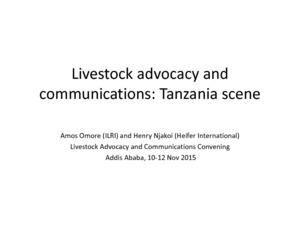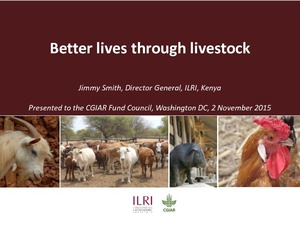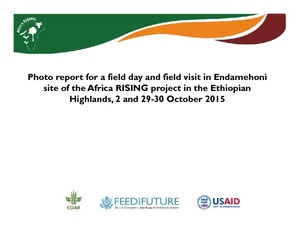Location
Vision, mission and strategy
ILRI's strategy 2013-2022 was approved in December 2012. It emerged from a wide processof consultation and engagement.
ILRI envisions... a world where all people have access to enough food and livelihood options to fulfil their potential.
ILRI’s mission is... to improve food and nutritional security and to reduce poverty in developing countries through research for efficient, safe and sustainable use of livestock—ensuring better lives through livestock.
ILRI’s three strategic objectives are:
- with partners, to develop, test, adapt and promote science-based practices that—being sustainable and scalable—achieve better lives through livestock.
- with partners,to provide compelling scientific evidence in ways that persuade decision-makers—from farms to boardrooms and parliaments—that smarter policies and bigger livestock investments can deliver significant socio-economic, health and environmental dividends to both poor nations and households.
- with partners,to increase capacity among ILRI’s key stakeholders to make better use of livestock science and investments for better lives through livestock.
This is ILRI’s second ten-year strategy. It incorporates a number of changes, many based on learning from the previous strategy (2000–2010, initially produced in 2000 and modified in 2002), an interim strategy (2011–2012) and an assessment of the external and internal environments in which the institute operates.
Members:
Resources
Displaying 201 - 205 of 1152Systems Analysis for Rangeland Management Yabello, Ethiopia - November 5-6, 2015 - Workshop Report
The workshop, “System Analysis for Rangeland Management in Yabello”, involved multiple stakeholders analyzing the complex factors that affect rangeland condition and management, and considering implications for planning and decision-making around key issues. The workshop aimed to complement activities which are already ongoing including the planning being done by community Rangeland Councils in Yabello Woreda and elsewhere in Borena Zone.
PASTORALIST PARTICIPATION AND NETWORKING IN POLICY DIALOGUE: DIMENSIONS AND CHALLENGES
Pastoralists have a unique relationship of mutual dependency with their livestock and their environment; the uniqueness of this relationship distinguishes them from other livestock keepers. They depend highly on the environment where they develop their livelihood, that they make productive through highly adapted animals, but at the same time the quality of this environment depends on how well they take care of it, which in turns depends on complex social regulations and on large-scale mobility. The way they keep their animals forms part of their daily life and of a complex culture.






